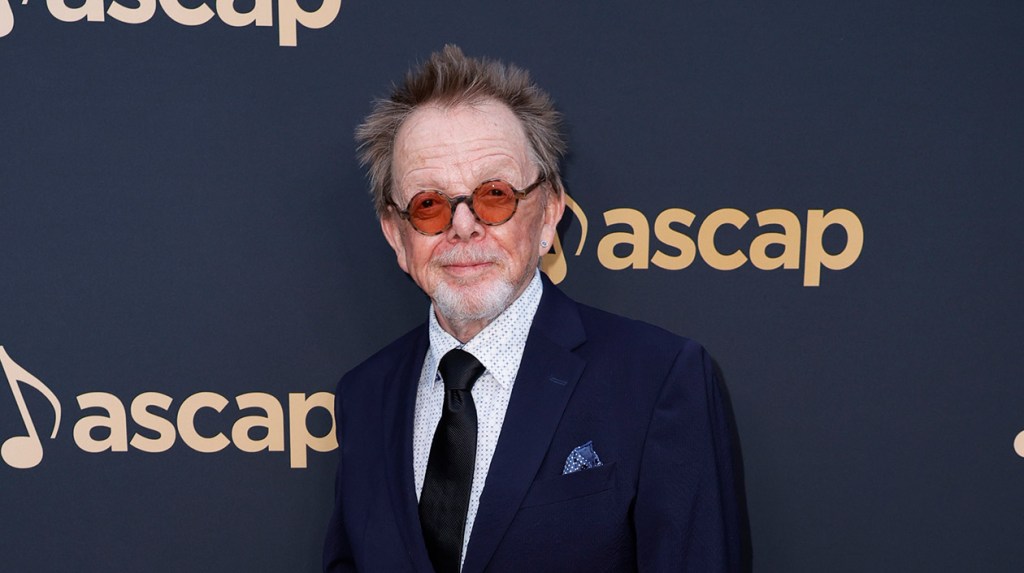ASCAP collections grew 14.1% to $1.737 billion in 2023 and payouts to songwriters and publishers increased 14.7% to $1.592 billion, the performance rights organization reported Wednesday (Feb. 28). Those figures represent a record year for ASCAP in both revenue buckets, as well as all-time highs for any U.S. performance rights organization ever, ASCAP claimed.
The last time BMI revealed its annual financials — for the year ended June 30, 2022 — the PRO reported collections of $1.573 billion and pay outs of $1.471 billion. BMI did not disclose any full-year financial information in its most recent annual report for its fiscal year ended June 30, 2023, and is not likely to disclose any financial information going forward, since it’s now owned by institutional investor New Mountain Capital and will be operating on a for-profit basis. ASCAP now stands as the only U.S. PRO operating on a not-for-profit basis.
ASCAP’s collections break down to $1.327 billion domestically (up 12.7% from the year prior), and $410 million internationally (up 19.2%). For distributions, ASCAP paid out $1.217 billion domestically (up 16.1%), and $375 million internationally (up 10.3%).
Trending on Billboard
“ASCAP’s mission and not-for-profit business model are more important now than ever before, as artificial intelligence transforms the music landscape, and the need for legislative advocacy to protect creators in DC has never been more important,” ASCAP chairman and president Paul Williams said in a statement. “ASCAP will always be a champion for the humans who create music and demand transparency and fair payment from those who exploit our work. ASCAP makes it possible for our songwriter and composer members to write the next song, to earn a living and to support their families. No one else in the industry has the backs of songwriters like ASCAP.”
In announcing its financial results, the organization pointed out that unlike its competitors, ASCAP has no debt, no shareholders, no private owners and no private equity investors. In other words, ASCAP’s music creator and publisher members are the sole beneficiaries of ASCAP’s financial success.
Moreover, it noted that a democratically elected Board of Directors composed of music publishers and music creators sets the royalty distribution rules and cost allocations based on follow-the-dollar principles. It is the only U.S. PRO that makes those distribution rules publicly available on its website providing transparency to its membership.
“We are delivering industry-leading technical innovation, legislative advocacy and revenue growth that solely benefits our members, not outside investors or shareholders,” ASCAP CEO Elizabeth Matthews said in a statement. “As we like to say, private equity never wrote an iconic love song which is why we fight purely for songwriters, composers and publishers, not for those who use creators and their works of art for their own profits or to secure their own debt. ASCAP differs from others because our mission and purpose is clear and unique.”
In looking at new technology, the PRO reported that in 2023 its board of directors adopted six principles to guide its response to the technology and later submitted them on behalf of members to a U.S. Copyright Office study on generative artificial intelligence. And it reported it had held some AI symposiums for members.
During the year, ASCAP membership grew by 66,000 new members bringing total membership to 960,000 members. Some of those new members included PinkPantheress, Jack Antonoff, Tyla, and Jared Leto and Shannon Leto of 30 Seconds to Mars, as well as art-pop singer-songwriter Caroline Polachek, alt-rocker d4vd, jazz vocalist Samara Joy, country genre bender Jessie Murph, dark balladeer Chappell Roan, post-punker ThxSoMuch and writer-producer Alexander 23, among others
Moreover, the organization says its song catalog now includes 19 million copyrights that consists of music from the likes of Beyoncé, Billy Joel, Cardi B, Dua Lipa, Garth Brooks, Jay-Z, Katy Perry, Lil Baby, Lin-Manuel Miranda, Mariah Carey, Olivia Rodrigo, Paul McCartney, Stevie Wonder and Usher, among others.
Getting back to the financial numbers, ASCAP notes that since the launch of its strategic growth plan in 2015, its compound annual growth rate (CAGR) for total revenue through 2023 has increased to 7%, and the CAGR for total distributions over the same time period rose to 8%.
Moreover, ASCAP reported that in 2023, audio streaming revenue rose 21%, general licensing revenue rose 23%, radio revenue rose 10% and audio-visual revenue rose 3% as compared to 2022. However, ASCAP didn’t break out the specific revenue numbers like it used to in the years preceding 2015, the last year that ASCAP provided extensive insight into its financials.
As a percentage of revenue, overall ASCAP paid out 91.7% of collections in 2023, which implies expenses accounting for 8.3% of revenue. Yet, ASCAP executives also say the organization’s pays out nearly 90% of collections, which means overhead amounts to a little bit more than 10% of revenue.
In any event, ASCAP claims its 90 cents payouts on every dollar of collections yield “the highest value exchange applied to the lowest overhead rate provided to creators and publishers of any U.S. PRO.”

